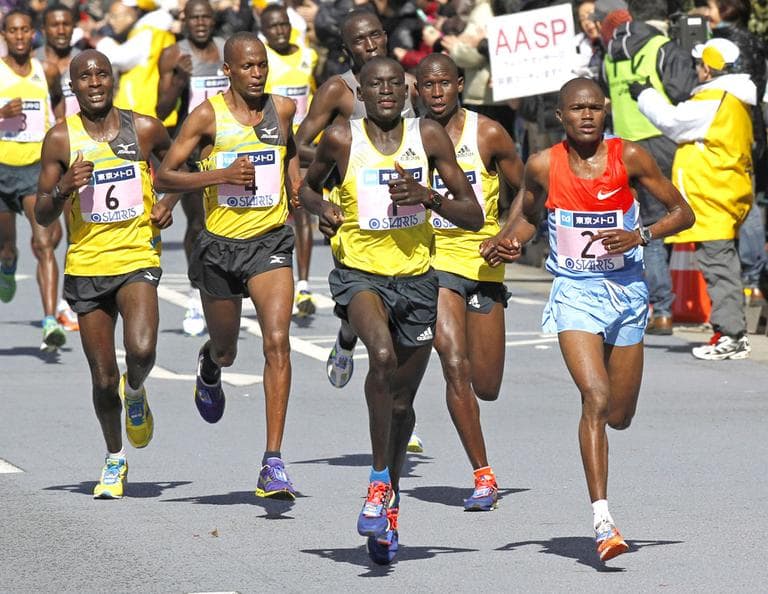Advertisement
World Marathon Majors Adopt New Anti-Doping Policies

African runners continue to dominate the world's biggest marathons. In Tokyo Sunday Kenya's Dennis Kimetto and Aberu Kebede of Ethiopia won the men's and women's races. Kimetto's time of 2-hours-6-minutes-50-seconds broke the Tokyo race record by more than 30 seconds. Kebede finished in 2:25:34. This was the first time the Tokyo Marathon has been part of the World Marathon Majors (WMM) - a series of race that award prize money to the top men's and women's runners over a two year period. The series continues in Boston April 15 and London on April 21.
Regarding that African dominance in the marathon I'm reading some interesting comments from David Bedford, the former British Olympian, race director for the London Marathon and founder of the WMM. Bedford was asked about the aggressive new anti-doping measures introduced by the WMM recently and he tells the website RunBlogRun: "When 88 of 100 men in 2012 in top 100 marathon performances are from Kenya and Ethiopia and 54 of top 100 women are from the same countries, it's important that testing be increased in those countries."
Under the new policies, elite athletes will have to sign contracts that include the right for the events to suspend payment and demand repayment of prize money, appearance fees and performance bonuses if the runners violate anti-doping rules.
“I would love to see all major events follow its lead," said the current women's marathon record holder Paula Radcliffe in a press release from the WMM organizers.
Radcliffe also said, "The cheats need to understand that they are not welcome in our sport and will be caught and made to pay. This is a step forward in increasing the deterrent and showing athletes and managers that cheating won't be tolerated. Having to pay back all money won while cheating is common sense and a logical element that has been missing for a long time. It is clear that any monies won while cheating are tantamount to fraud and should be returned."
I'm not aware of any doping problems in any of these big marathons in recent memory, but the issue of performance-enhancing drugs casts a long shadow over distance running.
Remember Frank Shorter? He won the Olympic Marathon in Munich and was considered the favorite four years later in Montreal. Shorter finished second in that race which was won by an East German runner named Waldemar Cierpinski, who had no record as a marathoner. In the 1990s after the Berlin Wall fell the details of East Germany's drug program for its Olympic athletes were revealed and Cierpinski, who would also win the Olympic Marathon in Moscow in 1980, was implicated.
The great Finnish runner Lasse Viren, who won both the 5K and 10K races in successive Olympics, finished 5th in the marathon in Montreal in 1976. He had never run a marathon before. There has always been speculation that Viren benefited from a process called blood-doping. Viren has denied that and once joked that the secret of his success was drinking reindeer milk.
This program aired on February 25, 2013. The audio for this program is not available.
